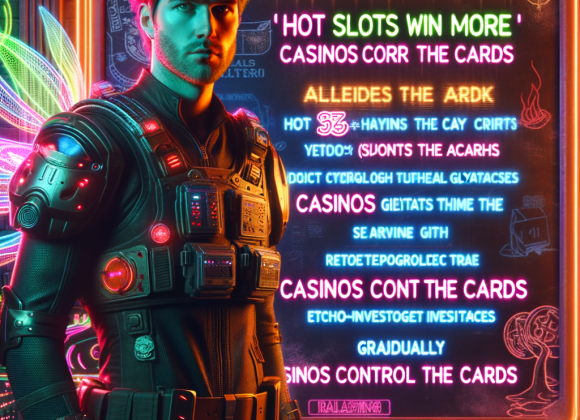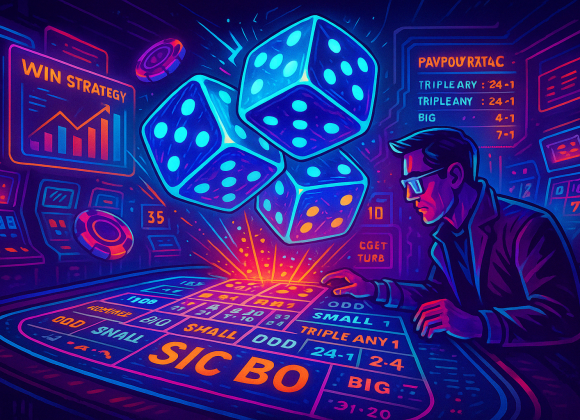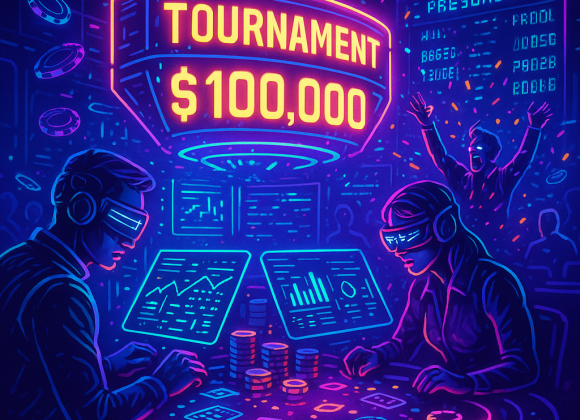Poker is often portrayed as a game of chance, with players sitting around the table, nervously hoping for a winning hand. However, the world of professional poker reveals a different story. While luck might play a role in the short term, seasoned players understand that true success hinges on skill, strategy, and mental fortitude. In this article, we’ll delve into why professional poker players don’t rely on luck, exploring various elements that contribute to their expertise.
1. Luck Is Just a Sidekick in the Poker Universe!
In the grand theater of poker, luck might be the quirky sidekick, providing comic relief or unexpected twists, but it’s the star players—the strategies and skills—that take center stage. Luck can influence the outcome of a single hand, but over the long haul, it evens out. Professional players understand that the odds will ultimately level out if they play enough hands.
Consider this: a player can receive a royal flush in a single game, but if they lack the skill to capitalize on it or mismanage their chips, that stroke of luck can quickly turn sour. What’s vital is the ability to leverage those moments when luck swings in one’s favor and to mitigate losses when it doesn’t.
Moreover, professionals approach each game with a mindset focused on long-term results. They know that the cards they draw in any single hand are irrelevant; what truly matters is their ability to make sound decisions, apply their strategies, and understand their opponents.
While luck may bring a temporary advantage, it’s temporary at best. Over time, a player’s skills, strategies, and mental toughness will shine through, clearly separating the great from the mediocre in the poker universe.
Poker players often liken luck to the weather—sometimes sunny, sometimes stormy, but rarely a determinant of success. In the end, it’s the skillful player who can navigate through it all and still come out ahead.
2. Skill and Strategy: The Real Poker Power Players!
In poker, skill and strategy are the true MVPs that lead to consistent success. Professional poker players dedicate countless hours to honing their craft, studying various strategies and learning the intricacies of the game. They are not merely content to play the cards they’re dealt; they strive to master the art of poker.
Skill comes into play in many forms, from understanding hand rankings to mastering betting techniques. A great poker player knows when to bluff, when to call, and when to fold—all based on a mixture of game theory, personal experience, and strategic thinking.
The strategies employed by professionals can vary widely. Some may adopt an aggressive style, betting high to intimidate opponents, while others may choose a more conservative approach, waiting for the perfect moment to strike. The ability to adapt one’s strategy based on the dynamics at the table is what sets apart top-tier players.
Moreover, understanding game theory is crucial. Professionals analyze various scenarios to determine the best possible moves, weighing risks against potential rewards. This level of strategic thinking transforms poker into a riveting mental battle, much more than just a matter of luck.
In essence, luck might deal the cards, but it’s the skill and strategy that win the game. Professional players devote themselves to perfecting their skills, ensuring they are always one step ahead of their competitors.
3. Reading Opponents: The Mind Game Beyond Chance
One of the most fascinating aspects of poker is the psychological warfare that takes place at the table. The ability to read opponents is a skill that separates the pros from the amateurs. Understanding body language, facial expressions, and betting patterns can provide clues that may reveal the strength or weakness of an opponent’s hand.
Professional players develop keen observational skills, allowing them to pick up on subtle cues. A slight twitch, a hesitation before betting, or even the way a player handles their chips can send signals that offer insight into their hand. This is a game of incomplete information, and players who can decipher their opponents’ behavior hold a significant advantage.
Moreover, the art of bluffing is a significant element of poker. A well-timed bluff can turn the tide of a game, making opponents fold hands they may have otherwise played. This requires not just skill but also an understanding of players’ tendencies and emotions.
As professionals gain experience, they also learn to manage their own ‘tells.’ They become adept at concealing their emotions and behaviors to avoid giving away information. This cat-and-mouse game adds a thrilling layer to poker, transforming it into a complex psychological contest.
In this mental chess match, luck has little to do with the long-term success of a player. It’s the ability to read others and manipulate perceptions that truly makes a poker player exceptional.
4. Math Wizards: Calculating Odds Like a Pro!
Luck may draw the cards, but math keeps the game in check. Professional poker players are often adept at probability and odds calculations, turning complex scenarios into quantifiable decisions. They understand the mathematics behind the game, which is crucial for making informed choices about their bets.
At its core, poker involves calculating pot odds, which compare the current size of the pot to the size of the bet. This gives players a clear picture of whether a bet is worth the risk based on the likelihood of completing their hand. A savvy player knows that sometimes it’s better to fold than to chase a hand that statistically warrants no further investment.
Furthermore, the concept of expected value (EV) is essential in poker strategy. Skilled players assess the long-term profitability of their actions by calculating the EV for different plays. This analytical approach allows them to make decisions that are favorable over time, rather than getting swept up in the moment.
The use of math also extends to understanding the concept of implied odds, where a player considers not just the current pot but potential future bets that could lead to larger wins. The ability to integrate these calculations into their gameplay is what elevates professionals from casual players.
Ultimately, while luck may dictate which cards are dealt, it’s the math that helps players make the most of those cards. In poker, embracing the numbers is a winning strategy.
5. Experience Counts: Learning from Every Hand Dealt
Experience is the greatest teacher in the world of poker. Each hand dealt provides a unique lesson, offering insights into strategies, opponents, and gameplay. Professional players often reflect on their past experiences, analyzing both wins and losses to refine their approach.
By reviewing previous hands, whether they were successful or not, professionals learn to identify mistakes and improve their decision-making processes. This critical self-evaluation is essential for growth and development in an ever-evolving game.
Furthermore, seasoned players develop a vast repository of knowledge that helps them recognize patterns in their opponents’ behaviors. The more hands they play, the better they understand the nuances of the game, allowing them to make more informed decisions on the fly.
Experience also builds confidence, enabling players to stay calm under pressure. When facing tough situations, a player who has navigated similar challenges in the past is more likely to make rational decisions rather than succumb to panic or frustration.
Additionally, poker tournaments and cash games each present unique experiences that contribute to a player’s overall skill set. By participating in various formats, players can adapt to different playing styles and strategies, further broadening their expertise.
In poker, experience is like seasoning in a delicious dish—essential for creating the perfect blend of skills and strategies.
6. Building Resilience: Bouncing Back from Bad Beats!
In the world of poker, bad beats are inevitable. These are moments when a player feels they have made all the right moves, only to have fate intervene and snatch victory away at the last second. Professional players understand that resilience is key to navigating these challenging moments.
When faced with a bad beat, seasoned players don’t dwell on the negative outcome. Instead, they focus on the bigger picture and stick to their strategies. They recognize that setbacks are a natural part of the game and that dwelling on them only distracts from future opportunities.
Building emotional resilience allows players to maintain composure, even in the face of adversity. Professional players learn to separate their emotions from the game, making it easier to bounce back and continue performing at their best.
Moreover, resilience is critical for managing bankrolls. A professional knows that losing streaks can happen, and they need to have the discipline to stick to their strategies and avoid chasing losses. By approaching the game with a resilient mindset, they can maintain their edge and focus on long-term success.
Ultimately, the ability to bounce back from bad beats not only enhances a player’s skills but also contributes to their mental strength. As the saying goes, “What doesn’t kill you makes you stronger,” and in poker, this couldn’t be more accurate.
| Skill/Element | Description | Importance |
|---|---|---|
| Luck | Chance occurrences at the table | Secondary factor |
| Skill | Mastering gameplay techniques | Core to long-term success |
| Strategy | Adapting to opponents and situations | Essential for winning |
| Reading Opponents | Understanding behaviors and tendencies | Crucial for making decisions |
| Math | Calculating odds and expected value | Foundation for informed play |
| Experience | Learning from past hands and scenarios | Key for ongoing improvement |
| Resilience | Bouncing back from losses and setbacks | Critical for mental strength |
Q&A Section
Q: Do poker players ever get lucky?
A: Absolutely! Luck can influence individual hands, but successful players know that it’s their skill and strategy that ensure long-term success.
Q: How important is emotional control in poker?
A: It’s incredibly important! Emotional control helps players make rational decisions, particularly after facing bad beats.
Q: Can anyone become a professional poker player?
A: Yes, with dedication, practice, and a willingness to learn, anyone can develop the skills needed to play at a professional level.
Q: What’s the biggest misconception about poker?
A: Many people believe poker is purely a game of luck, but in reality, it’s a complex blend of skill, strategy, and psychology.
Q: How do professionals handle losing streaks?
A: They focus on resilience, sticking to their strategies, and learning from their experiences, rather than getting discouraged.
In conclusion, while luck may have its moments in poker, it is skill, strategy, and mental resilience that pave the way for professional players to thrive. Through experience and a deep understanding of the game, they transform what seems like a game of chance into an art form that demands respect. So the next time you find yourself at a poker table, remember: luck is just a sidekick, while skill is the real star of the show!




